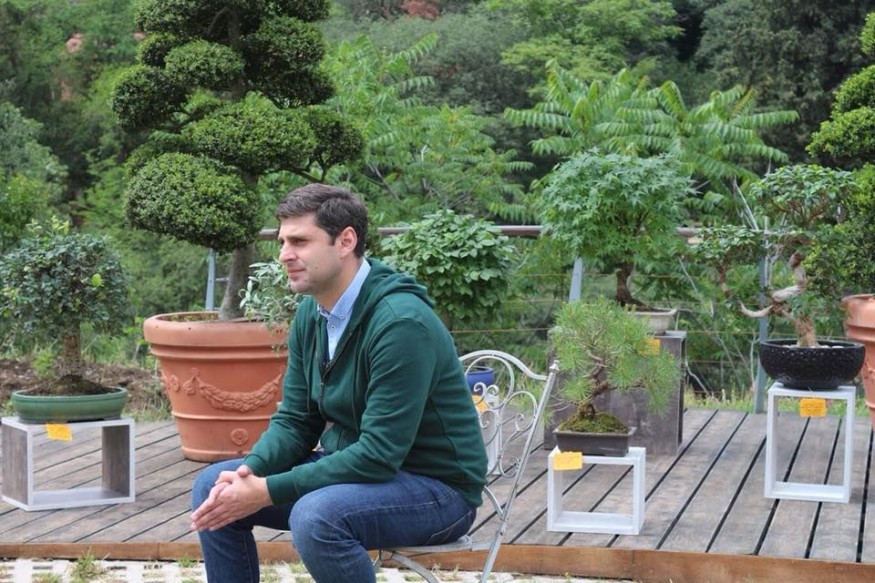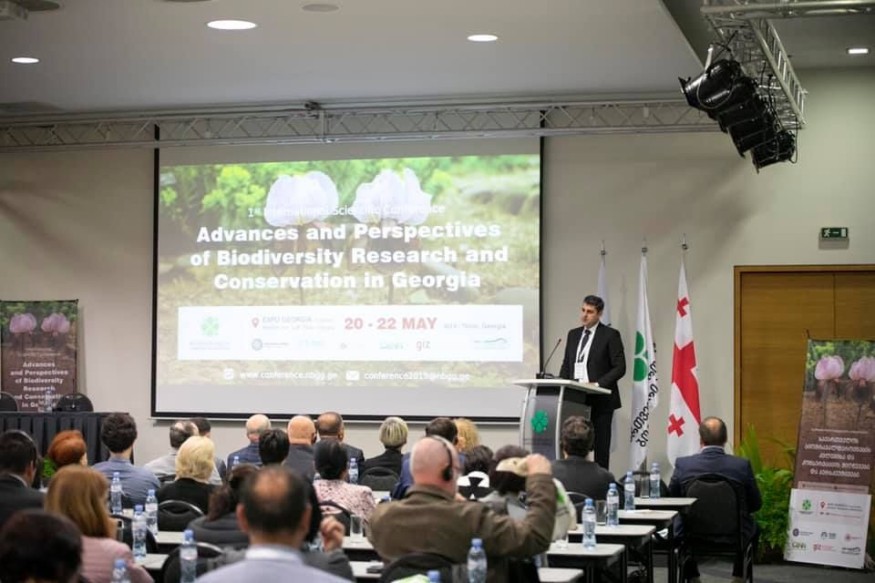
Tamaz Darchidze is a botanical garden director who emphasizes the importance of creative transformation in bringing about modernization and environmentalism. He brought positive changes to the two leading botanical gardens of Georgia, which he had managed for years, by transforming them from closed post-soviet institutions to modern public scientific, educational, cultural, and recreational centers.
Tamaz, what experiences led you to cultivate a career in directing botanical gardens?
My educational pursuits gave me the power to manage processes that united people of diverse interests and cultural knowledge. In the early 2000s, Georgian schools had begun to establish student self-governments, which meant channeling students' organizational, leadership, and critical thinking skills toward essential responsibilities and creativity. As the chairman of one of Georgia's universities—Batumi Shota Rustaveli University's student self-government of the first convocation, I gained valuable insight into connecting people with different views and interests. I was interested in the process of considering new circumstances and needs, organizing, adapting, and engaging people in achieving new goals.
Batumi City Hall made me the head of the youth affairs department. I oversaw municipal youth policy and programs to address youth needs. After seeing my organizational talents, Batumi City Hall gave me authority over the education, science, culture, and tourism department, where one of my duties was to review activities of Batumi Botanical Garden to evaluate its touristic potential.
To succeed in this operation, I needed to understand the underlying value of botanical gardens and what challenges and needs they face in their operations. Soon after a council meeting, I was granted directorship over the Batumi Botanical Garden.

What do you believe is the primary factor that allows botanical gardens to raise environmental awareness?
Botanical gardens are significant repositories of plant diversity, and they also promote protection of biodiversity in general. When citizens get an opportunity to view documented botanical collections from different regions of the world and learn about rare and endangered plant species through visible interpretation tools applied in botanical gardens, this helps to raise their awareness about the preservation of plant species diversity, and people look with new sight at the whole ecosystem around them and the issues of its sustainable living.
Botanical gardens are more than centers for science and research. Their scientific and educational role strengthens and makes more interesting the process of leisure for families, groups of interest of various ages. During my tenure as the director of the National Botanical Garden of Georgia, in all exhibitions, festivals, and public events (Green Expo, Bread Festival, Flower Show, etc.) were incorporated elements of environmental education. People are eager to learn, and exciting, immersive exhibitions like the Green Expo and the Bread Festival share information about plants, flowers, and grain crops. Besides this, we started nonformal environmental education projects for pupils and students.
What are some of the most honorable awards you have received since directing the National Botanical Garden of Georgia?
One of my most considerable achievements is my modest input in deepening cultural relations between Japanese and Georgian people. Japanese Garden in the National Botanical Garden of Georgia, constructed jointly by Georgian and Japanese gardeners, stands as an attraction and a visiting card for the two cultures and tourists. Toshimitsu Motegi, the Foreign Minister of Japan, gave me an honorary certificate for this endeavor. As such, I have collaborated with the Embassy of Japan to co-host Japanese cultural events at the garden and planted cherry trees to embrace cultural diversity and plant diversity.
Another milestone in my career is being able to say that I helped the National Botanical Garden of Georgia create a strategic development and landscape masterplan for the first time in its history. I have understanding of the essentials of having a strategic development plan to respond to modern challenges, such as implementing new gardens and revamping the garden's scientific infrastructure. For instance, to make the garden more of a pleasant place for visitors, Tbilisi City Hall and I updated the touristic infrastructure.
The Georgian National Prize is an honorable award from the President of Georgia because it demonstrates one's excellence in benefiting Georgian society and incorporating relevant projects into sincere reform. As a director of Georgia's central gardens, I directed global research and conservation operations. One of my co-authored monographs, "Agricultural Culture of Georgia," received this admirable prize, and I was awarded a laureate diploma and a badge.

How do you believe your work will impact the future of Georgia?
Showing society how to embrace the environment and become aware of protecting various species is vital to me, and I can do that through botanical gardens. These biodiversity centers give me opportunities to create educational initiatives and long-term protection mechanisms. I plan to continue improving myself in management positions and educating myself to improve Georgia's industrial and economic infrastructure.
© 2025 ScienceTimes.com All rights reserved. Do not reproduce without permission. The window to the world of Science Times.









